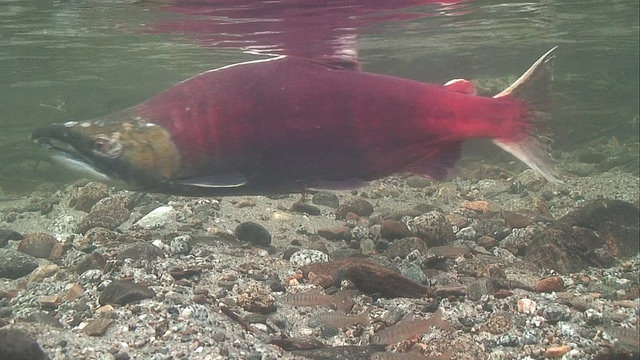
Chuitna Water Reservation Challenged
In October 2015 Trustees for Alaska won the first ever private water reservation for the Chuitna Citizens Coalition for part of Middle Creek, a tributary of the Chuitna River. This award sets an important precedent for citizens across Alaska to protect salmon streams. That precedent is at risk.
PacRim submitted an administrative appeal to the Commissioner of the Department of Natural Resources(DNR) asking him to revoke that decision. Supported by others in the mining industry, PacRim not only wants to deny salmon any water, they don’t think citizens should have a say in how our rivers are used by industry. DNR received more than 13,000 comments in support of all three water reservations.
Other water reservation applications would be put at risk by a reversal of DNR’s decision including those made by tribes around the State. Trustees for Alaska is defending Chuitna Citizens Coalition’s hard won water right and the public’s right to have a say.
A Pristine Watershed
Located 45 miles across Cook Inlet from Anchorage, the Chuitna River and watershed provides pristine habitat for all five species of wild Pacific salmon and supports sustainable and productive subsistence, commercial and sport fisheries. It also is home to the community of Beluga and Native village of Tyonek.
For most residents, fishing is a way of life. Commercial and subsistence fishermen work from the beaches hauling in silver salmon that provide food for their families. For some, it’s a way of earning a living, but for many it’s their survival.
The Chuitna River and watershed is threatened by the proposed coal strip mine. The headwaters of Middle Creek lie smack dab in the middle of PacRim Coal’s proposed massive strip coal mine. The project would mine for coal over 5000 acres, making it the 14th largest coal mine in North America and the largest coal mine in Alaska. The mine’s coal reserves total approximately 300 million metric tons of bituminous (low grade) coal.
Permitting for the Proposed Mine
PacRim is going forward with required permit applications that would allow them to:
• Destroy 14-miles of a salmon stream;
• Eliminate over 1,000 acres of wetlands important for salmon rearing;
• Build an 8-square mile coal strip mine; and
• Discharge 7 million gallons of mine waste into the river every day.
PacRim will have to secure many permits to build the coal mine. The first public review of PacRim’s permits is coming this summer. The Army Corps of Engineers’ Environmental Impact Statement (EIS) that could be used as a basis for eliminating salmon habitat to build the mine will likely go out for a 60-day public comment period in mid-June. Trustees for Alaska will scrutinize the EIS and every permit at every step of the application process.
We are representing the Chuitna Citizens Coalition, Cook Inletkeeper, and the Sierra Club in our fight to protect the Chuitna River watershed. We also work closely with other groups here in Alaska that are trying to protect this important resource.
Coal is Bad for the Planet
If the coal claims in the Chuitna area are mined and the coal is burnt as fuel, it would contribute 3.9 billion metric tons of CO2 into our atmosphere. Alaska’s coal should not add to the world’s greenhouse gas emissions affecting our climate. That is just one of the reasons why keeping Alaska’s coal in the ground is a top priority for Trustees for Alaska.
It’s time to stop coal mining. Trustees for Alaska will not stop working to protect the Chuitna River.


